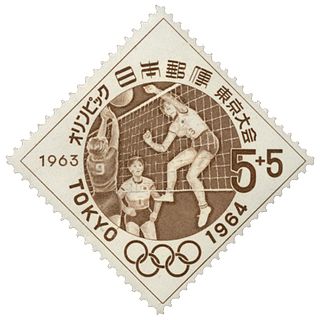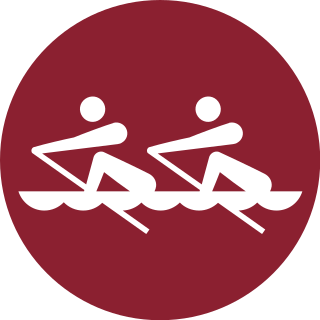
The Summer Olympic Games, also known as the Summer Olympics or the Games of the Olympiad, is a major international multi-sport event normally held once every four years. The inaugural Games took place in 1896 in Athens, Greece, and the most recent was held in 2024 in Paris, France. This was the first international multi-sport event of its kind, organized by the International Olympic Committee (IOC) founded by Pierre de Coubertin. The tradition of awarding medals began in 1904; in each Olympic event, gold medals are awarded for first place, silver medals for second place, and bronze medals for third place. The Winter Olympic Games were created out of the success of the Summer Olympic Games, which are regarded as the largest and most prestigious multi-sport international event in the world.

The 1964 Summer Olympics, officially the Games of the XVIII Olympiad and commonly known as Tokyo 1964, were an international multi-sport event held from 10 to 24 October 1964 in Tokyo, Japan. Tokyo had been awarded the organization of the 1940 Summer Olympics, but this honor was subsequently passed to Helsinki due to Japan's invasion of China, before ultimately being cancelled due to World War II. Tokyo was chosen as the host city during the 55th IOC Session in West Germany on 26 May 1959.

The 1964 Summer Olympics, officially known as the Games of the XVIII Olympiad, and commonly known as Tokyo 1964, were an international multi-sport event held in Tokyo, Japan, from 9 to 24 October. A total of 5,151 athletes representing 93 National Olympic Committees (NOCs) participated. The games featured 163 events across 19 sports and 24 disciplines. Two new sports were introduced to the Summer Olympic Games program in Tokyo: judo and volleyball. The inclusion of volleyball marked the first time that a women's team sport had been introduced.

The judo competition at the 1964 Summer Olympics was the first time the sport was included in the Summer Olympic Games. As a result, decades of judo being officially banned as an "imperialist sport" in the Soviet Union ended shortly before the Games started, as Soviet authorities prioritized winning medals over anything else. The medals were awarded in 4 classes, and competition was restricted to men only. The competition was held in the Nippon Budokan, which was built to host the competition.

Basketball contests at the 1964 Summer Olympics was the sixth appearance of the sport of basketball as an official Olympic medal event. It took place at the Yoyogi National Gymnasium in Tokyo, Japan from October 11 to October 23. The United States defeated the Soviet Union to win their sixth consecutive gold medal at this event, while Brazil earned the bronze against Puerto Rico.

New Zealand at the 1964 Summer Olympics was represented by a team of 64 competitors, 56 men and eight women, who took part in 35 events across 11 sports. Selection of the team for the Games in Tokyo, Japan, was the responsibility of the New Zealand Olympic and British Empire Games Association. New Zealand's flagbearer at the opening ceremony was Peter Snell. The New Zealand team finished equal 12th on the medal table, winning a total of five medals, three of which were gold.

The United States of America has sent athletes to every celebration of the modern Summer Olympic Games with the exception of the 1980 Summer Olympics, during which it led a boycott in protest of the Soviet invasion of Afghanistan. The United States Olympic & Paralympic Committee (USOPC) is the National Olympic Committee for the United States.

At the 1964 Summer Olympics, 16 wrestling events were contested, for all men. There were eight weight classes in Greco-Roman wrestling and eight classes in freestyle wrestling.

Rowing at the 1972 Summer Olympics featured 7 events, all for men. It was the last time that rowing did not include women's disciplines at the Olympics.

Rowing at the 1968 Summer Olympics featured seven events, for men only. The events took place at Lake Xochimilco.

Rowing at the 1960 Summer Olympics featured 7 events, for men only. The competitions were held from 30 August to 3 September on the Lago di Albano.

Rowing at the 1952 Summer Olympics featured seven events, for men only. The competitions were held from 20 to 23 July.

The 1964 Summer Olympics was the first time that volleyball had been held as an Olympic sport. The sport would feature two medals during this games with the men's and women's indoor teams events. In both tournaments, the format was the same with a single round robin between all of the teams that was competing in the tournament.

Canoeing at the 1964 Summer Olympics was held between 20 October 1964 and 22 October 1964 on Lake Sagami, 60 kilometres from Sagamiko, Kanagawa, Japan. There were 7 events, 5 of which were for men and 2 for women. Both of the women's events were 500 metre kayaking events; there were three kayaking and two canoeing events for men, all of which covered 1000 metres. The K-4 event for men was introduced to the Olympic program at these Games, replacing the 4×500 metre K-1 event that was raced in the 1960 Games.

The men's single sculls event was a rowing event conducted as part of the Rowing at the 1964 Summer Olympics programme. It was held from 11 to 15 October at the Toda Rowing Course. There were 13 competitors from 13 nations, with each nation limited to a single boat in the event. The event was won by Vyacheslav Ivanov of the Soviet Union, his third consecutive victory in the event. Ivanov's three gold medals in the event remains tied for the best results for any individual single sculler ; only Ekaterina Karsten has more medals in (women's) single sculls, though she took only two golds along with a silver and a bronze. The second spot on the podium was also a repeat of 1960; Achim Hill of the United Team of Germany became the sixth man to win multiple single sculls medals by repeating as silver medalist. Bronze this time went to Gottfried Kottmann of Switzerland, that nation's first medal in the event since 1924.

The men's coxed pair event was a rowing event conducted as part of the 1964 Summer Olympics programme. It was held from 11 to 15 October. There were 16 boats from 16 nations, with each nation limited to a single boat in the event. The event was won by American crew Edward Ferry, Conn Findlay, and coxswain Kent Mitchell. Findlay had been on the United States gold medal crew in 1956 and bronze medal crew in 1960; he was the first man to earn two gold medals in the event, as well as the first man to win three medals of any color in the event. Mitchell had also been on the 1960 crew, and was the seventh man to earn multiple medals in the coxed pair. Jacques Morel, Georges Morel, and cox Jean-Claude Darouy took silver to earn France's first medal in the event since 1952. Herman Rouwé, Erik Hartsuiker, Jan Just Bos earned what was formally the Netherlands' first medal in the event; a pair of Dutch rowers had won the first edition in 1900, but had jettisoned their cox in favor of a local French boy between rounds and thus that medal was a "mixed team" medal.

The men's coxed four event was a rowing event conducted as part of the Rowing at the 1964 Summer Olympics programme. It was held from 11 to 15 October. There were 16 boats from 16 nations, with each nation limited to a single boat in the event. The event was won by the United Team of Germany, the nation's second consecutive victory in the men's coxed four. The two medals placed the United Team of Germany in a tie for second-most all-time with Switzerland and Italy; Germany had the most with four. Italy earned its third straight medal in the event, all of different colours, with a silver in Tokyo. The bronze medal went to the Netherlands, the nation's first medal in the event since 1900.

The men's eight event was a rowing event conducted as part of the 1964 Summer Olympics programme. It was held from 12 to 15 October at the Toda Rowing Course. There were 14 boats from 14 nations, with each nation limited to a single boat in the event. The event was won by the United States, returning the top of the podium after losing their eight-Games winning streak with a fifth-place finish in 1960; it was the nation's 11th overall victory in the men's eight. The defending champions, the United Team of Germany, took silver; the Germans defeated the United States in the opening round but lost the rematch in the final after the Americans advanced through the repechage. Czechoslovakia repeated as bronze medalists.

The rowing competitions at the 2020 Summer Olympics in Tokyo took place between 23 and 30 July 2021 at the Sea Forest Waterway in Tokyo Bay. Fourteen medal events were contested by 526 athletes.


















